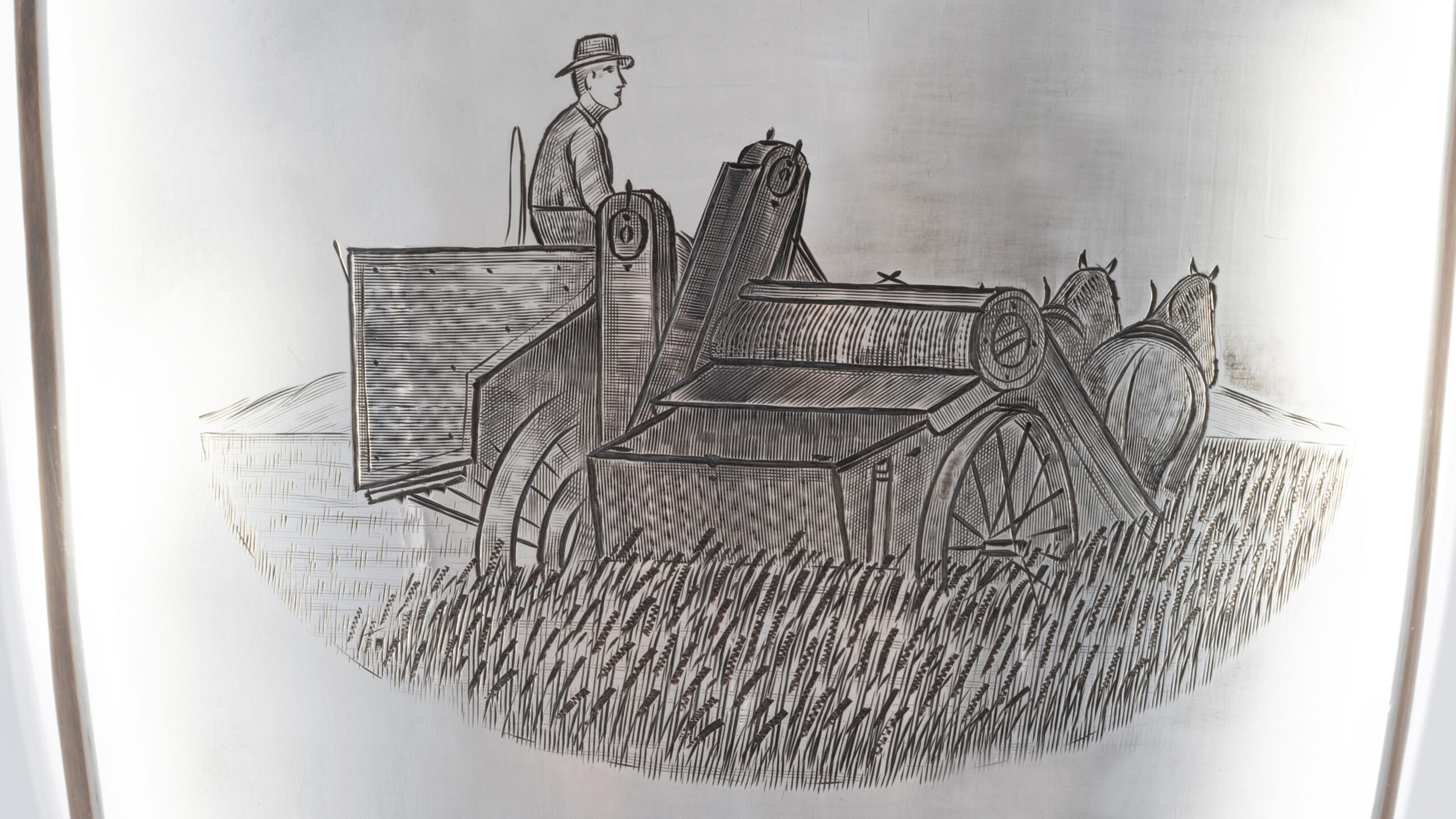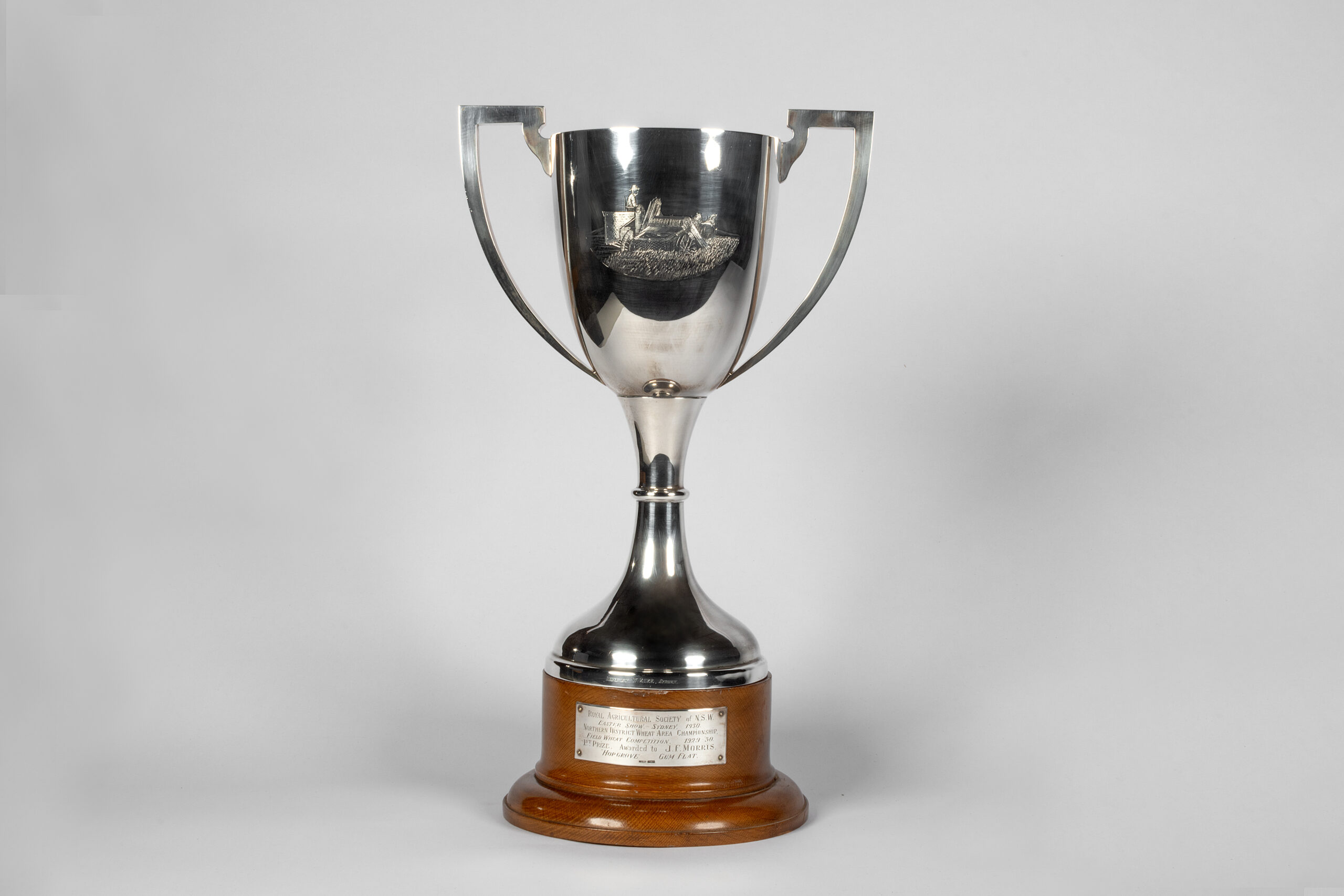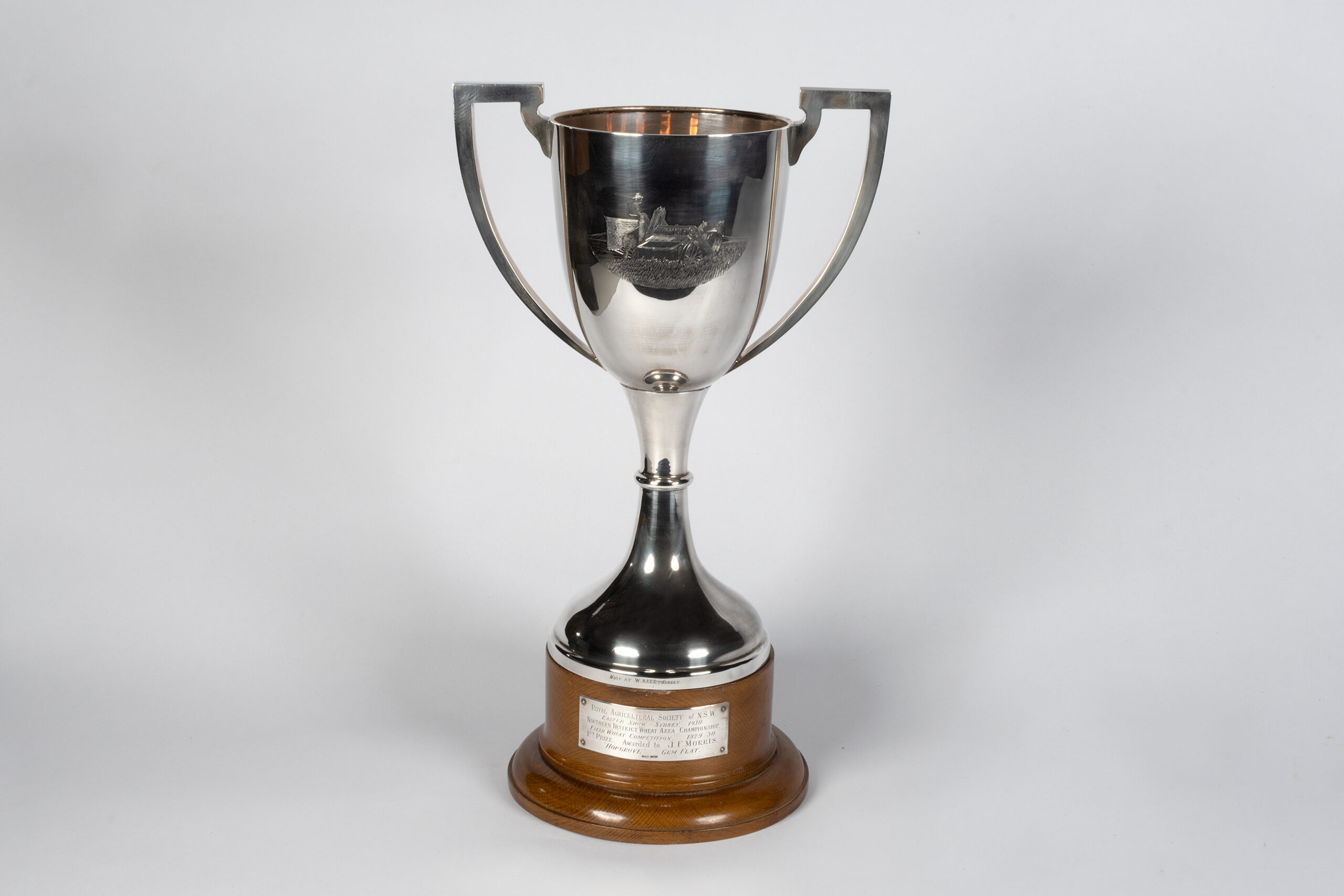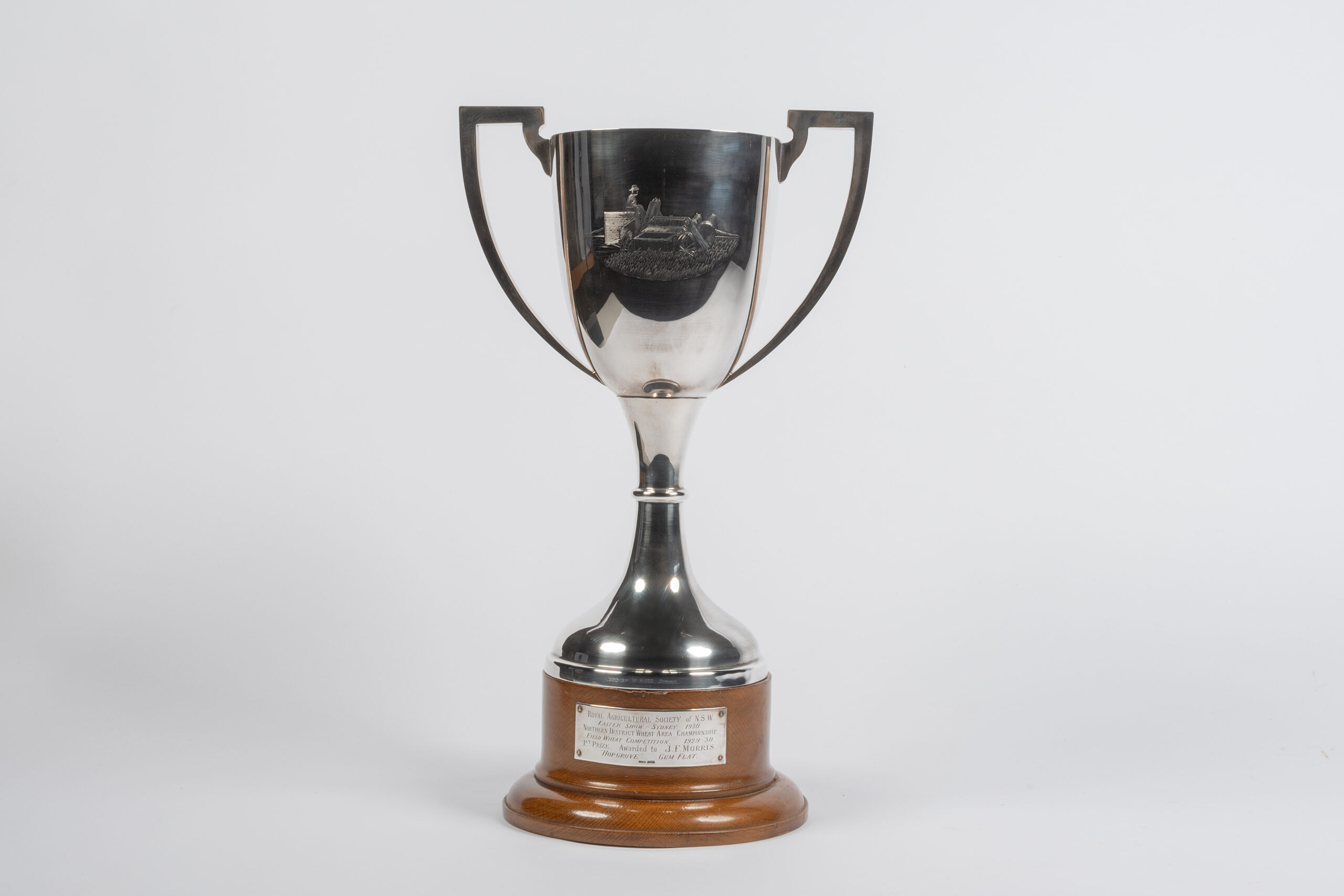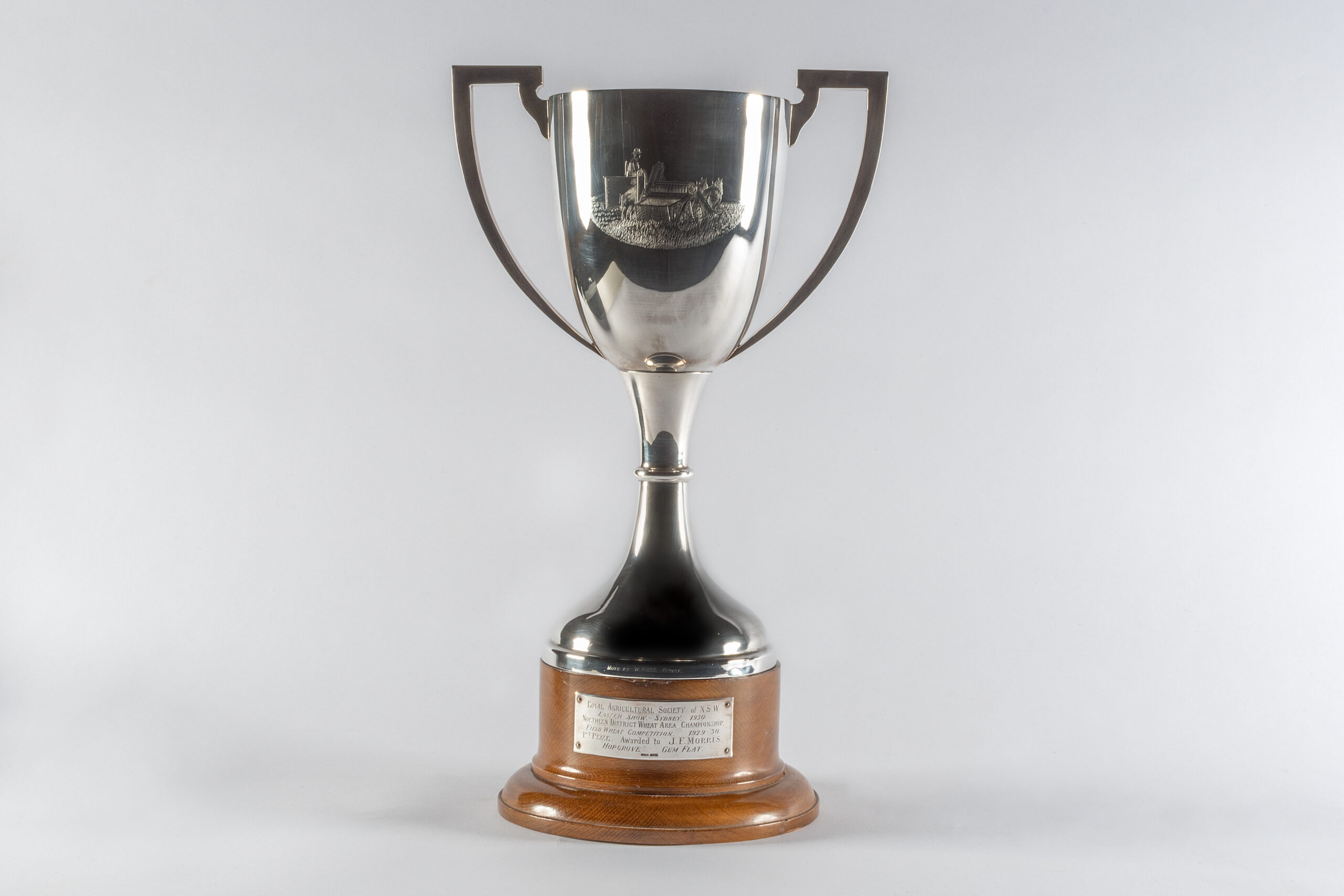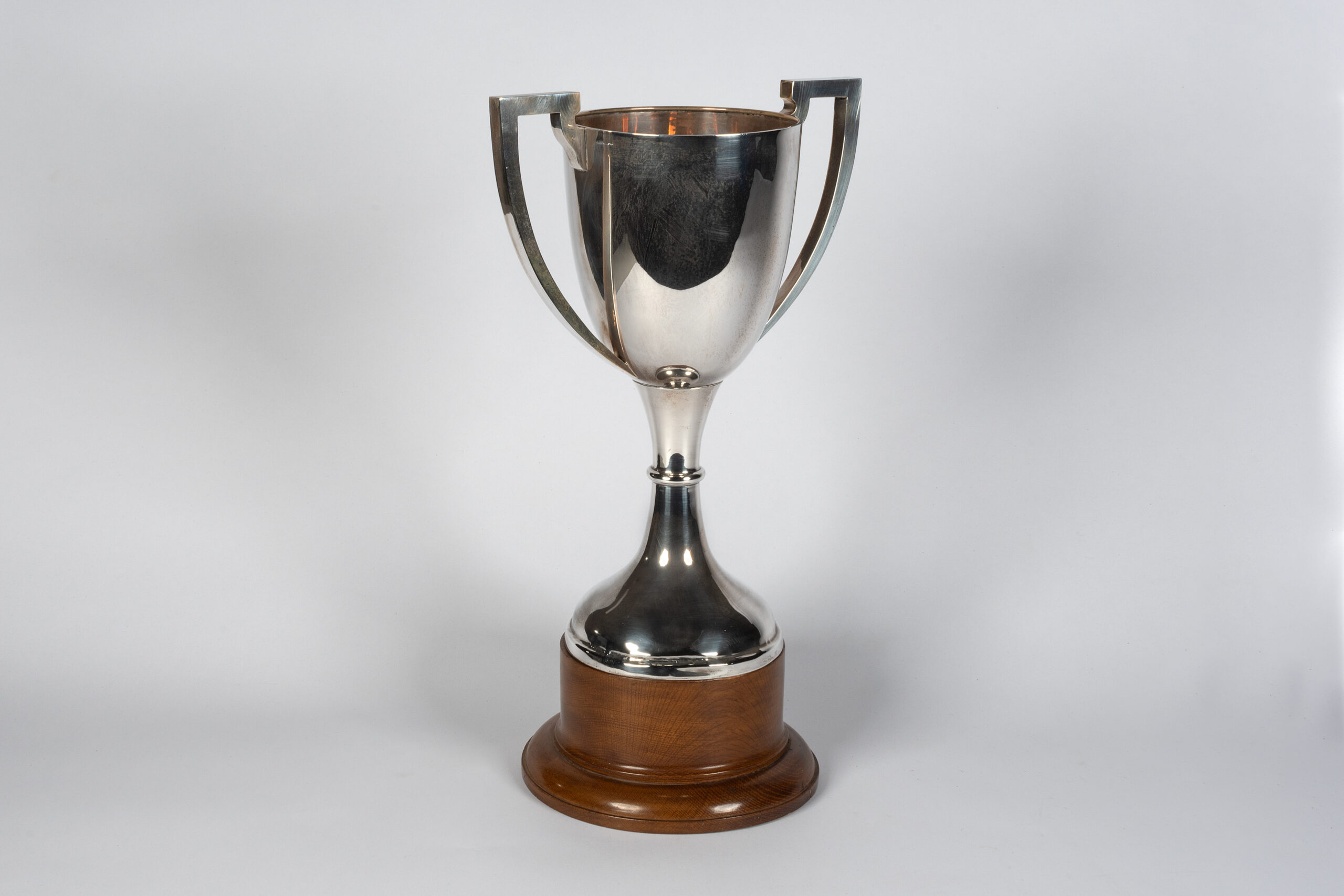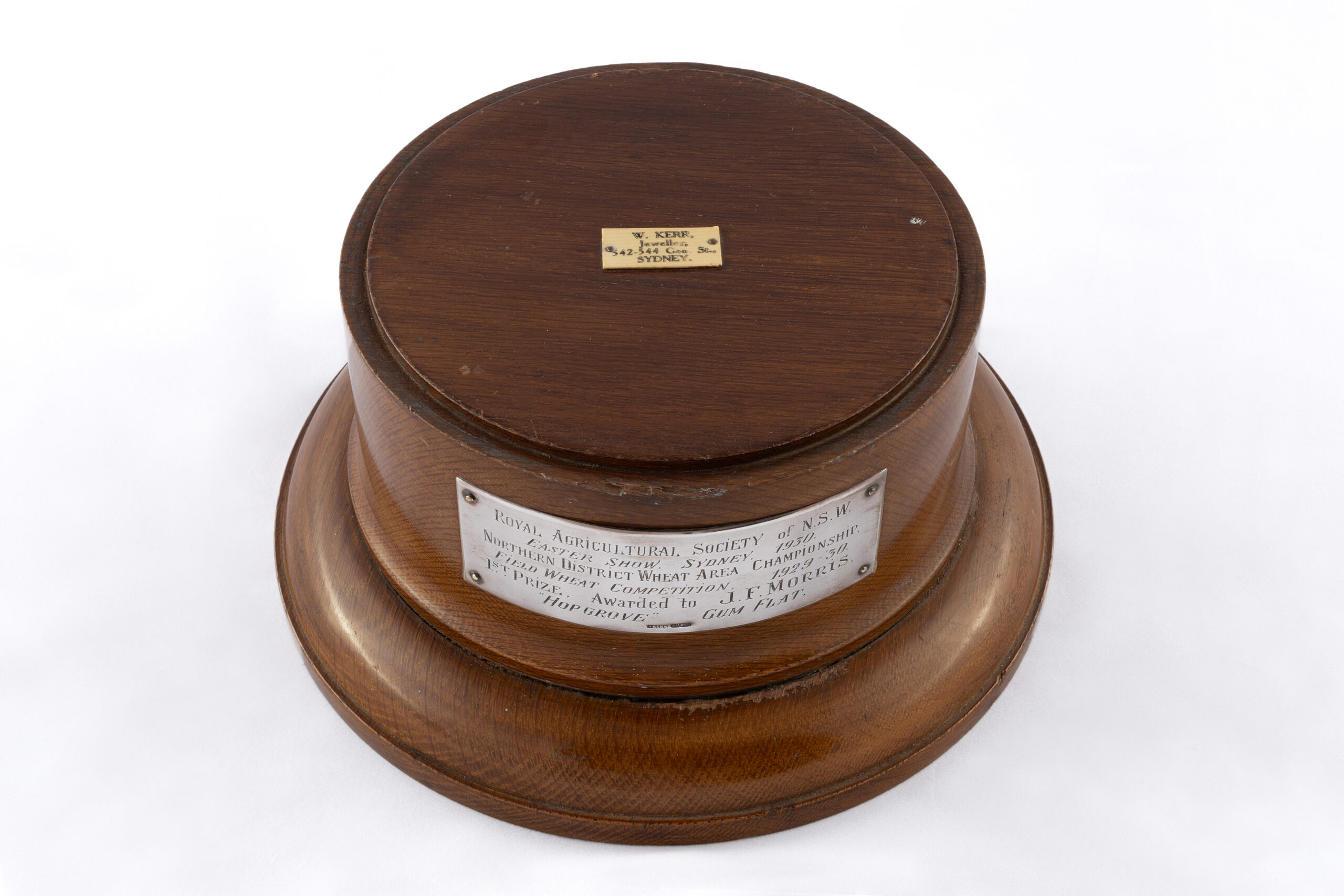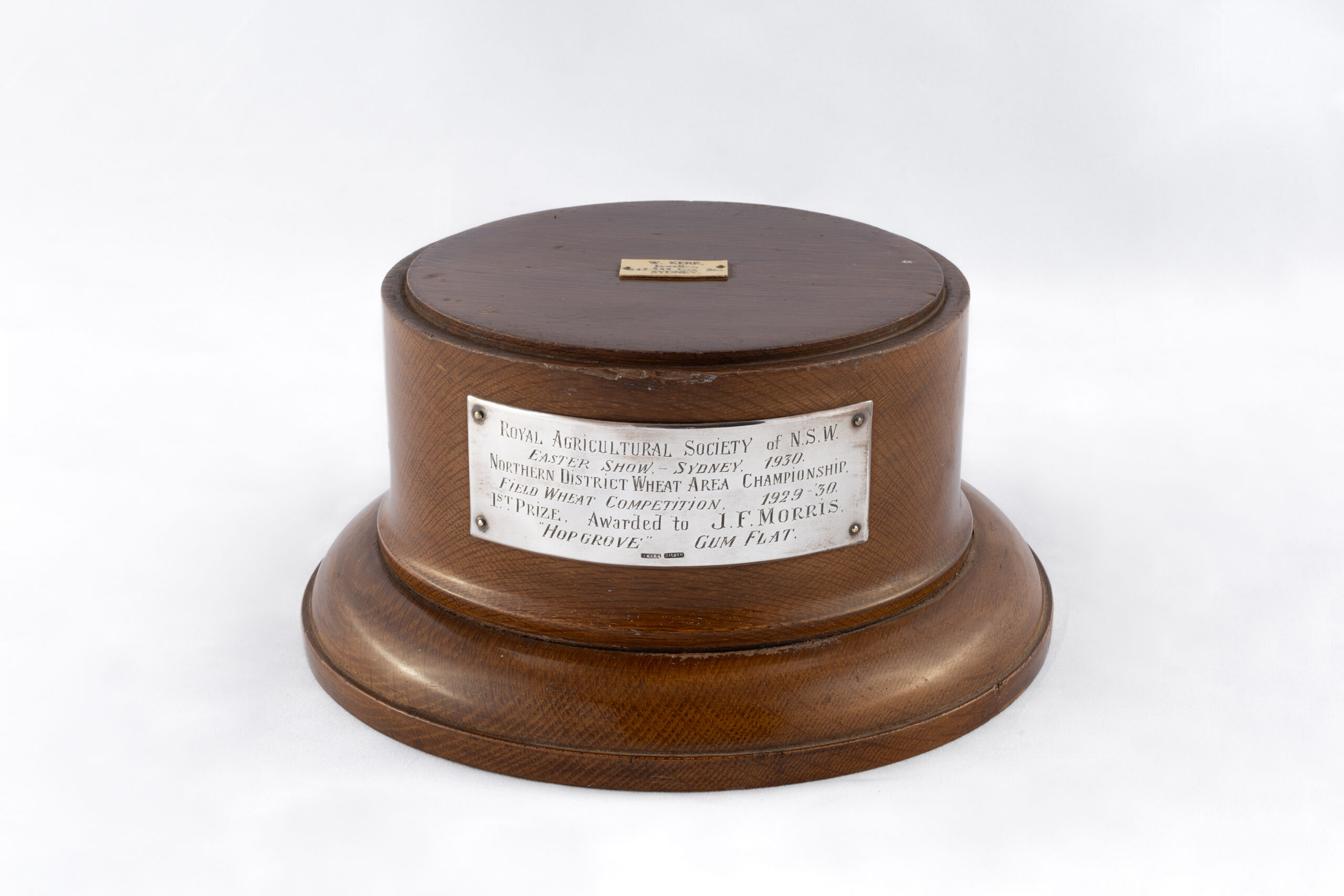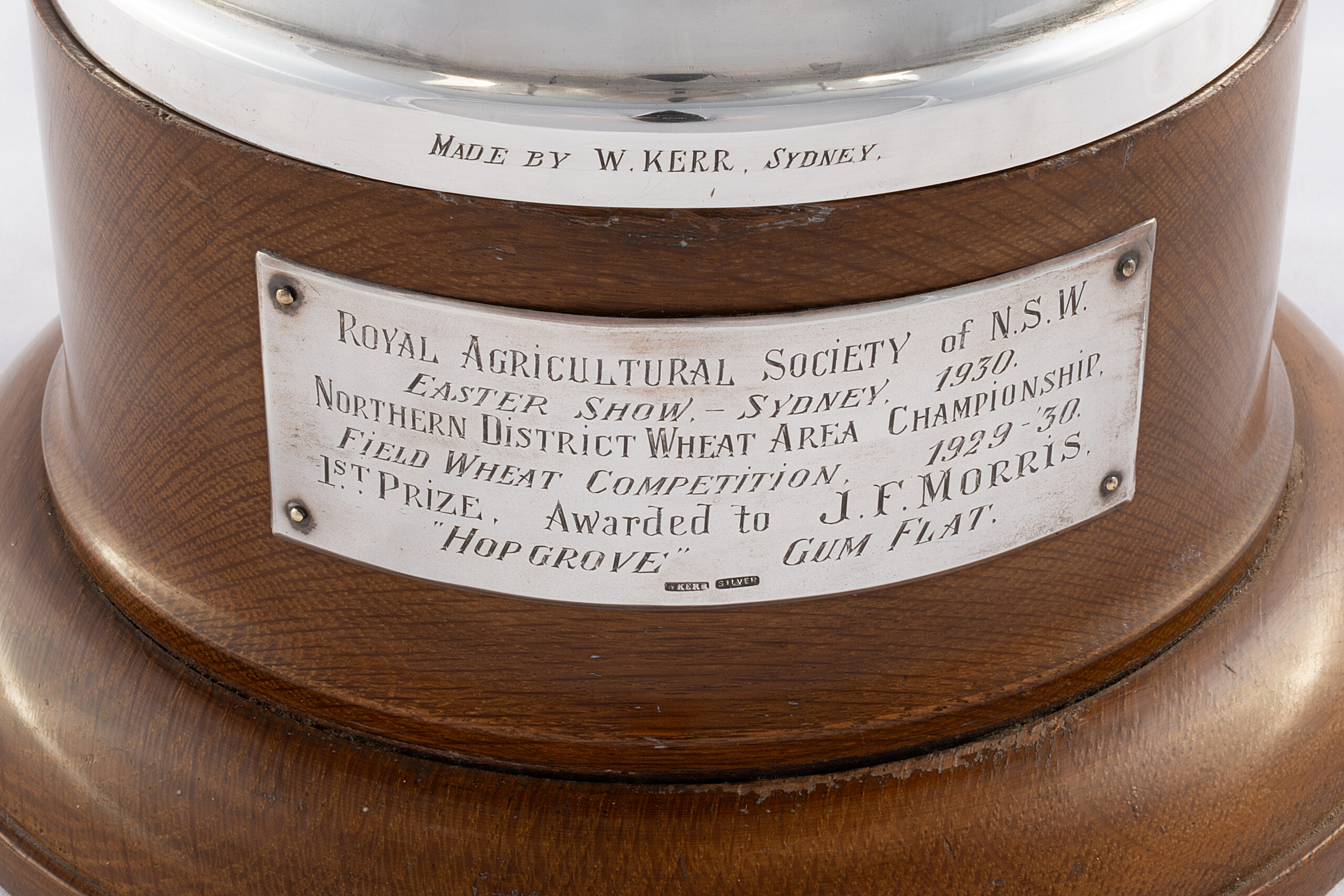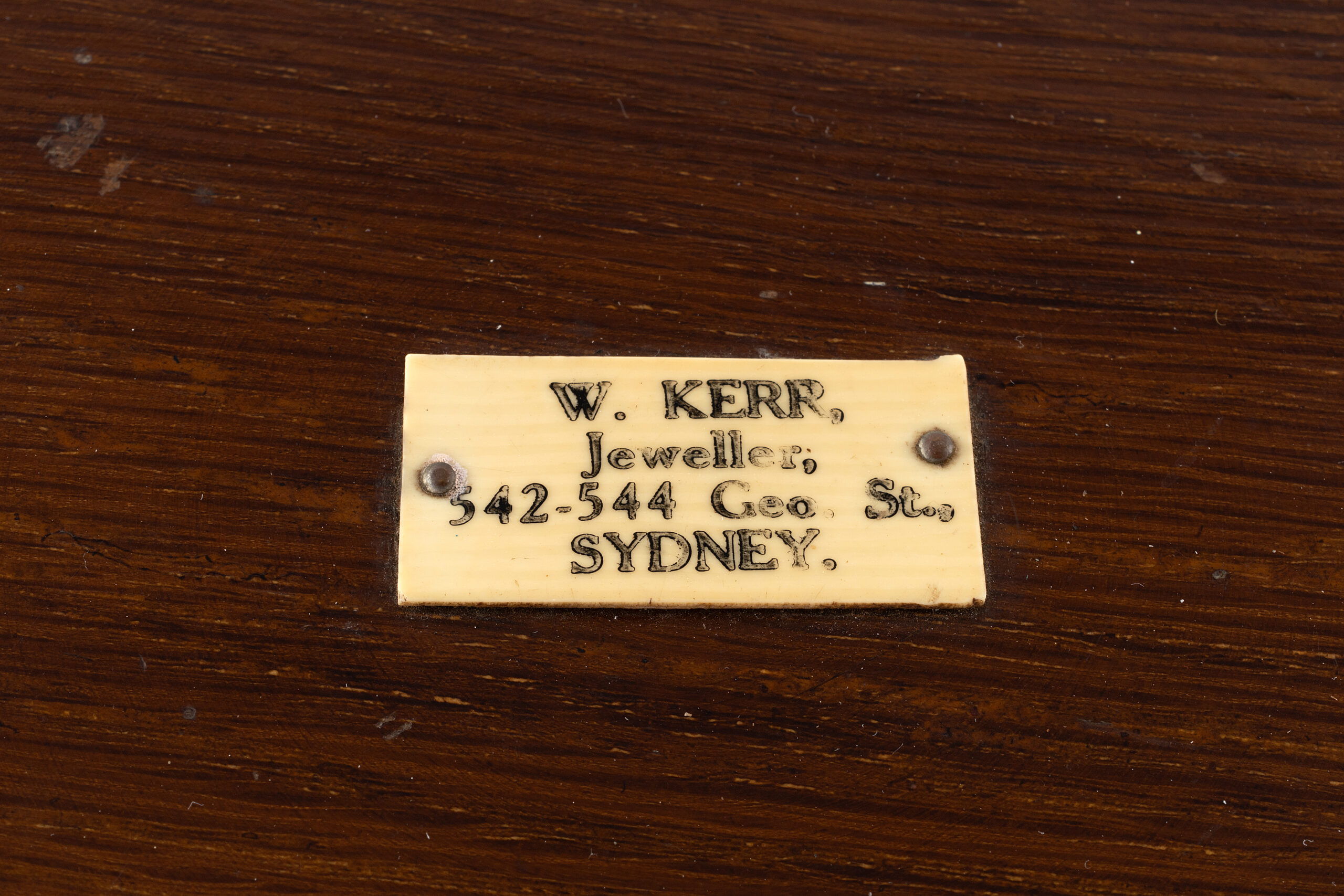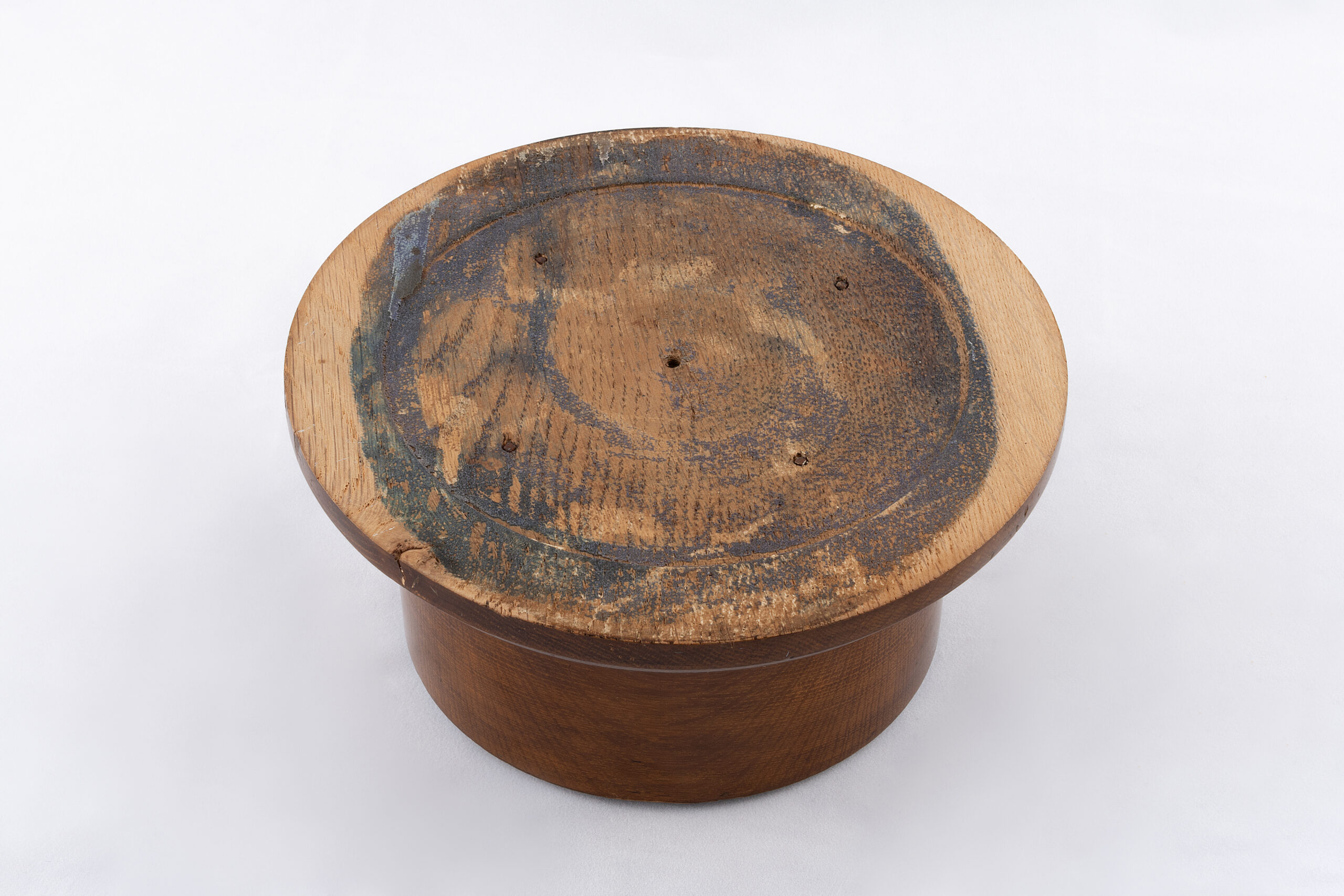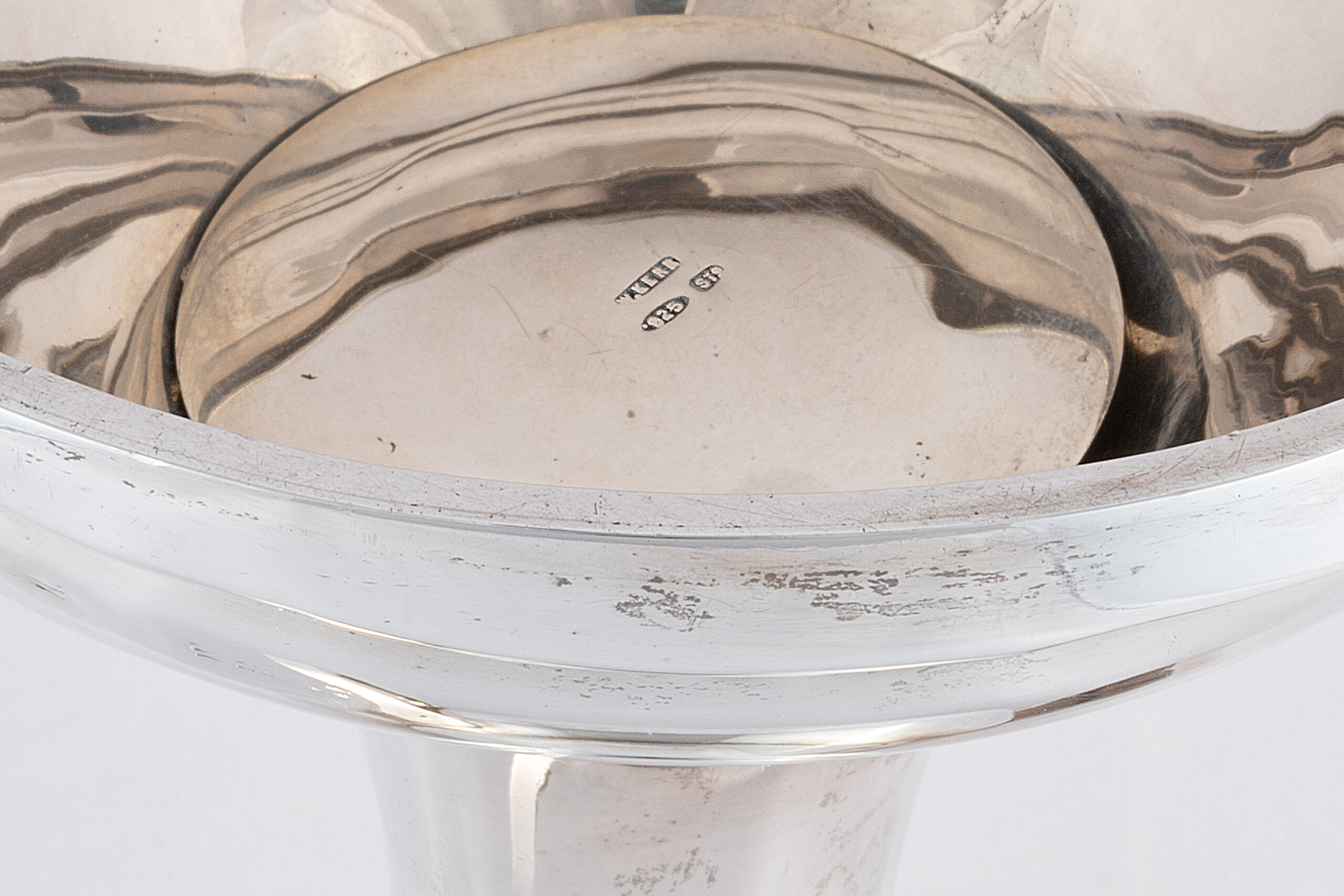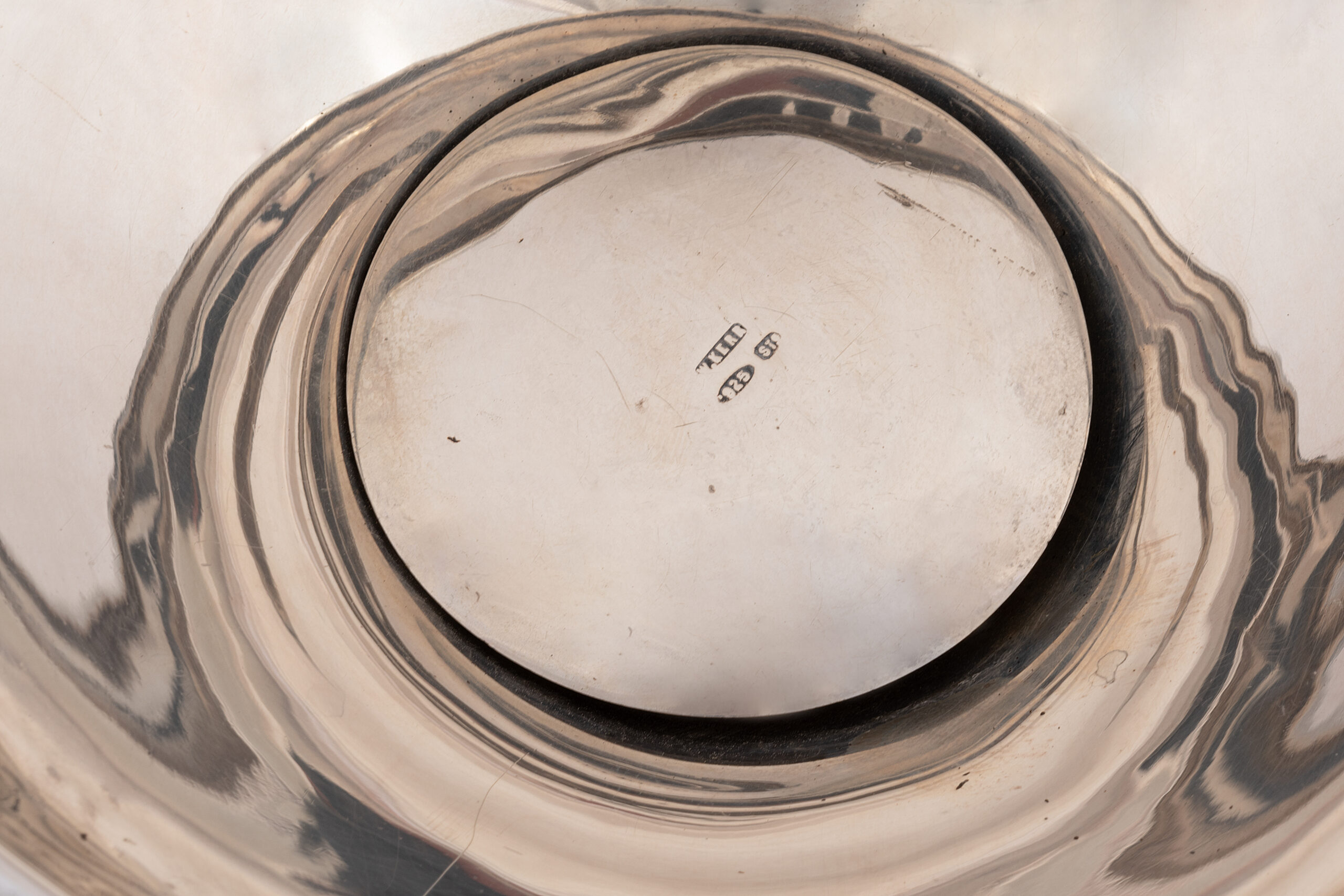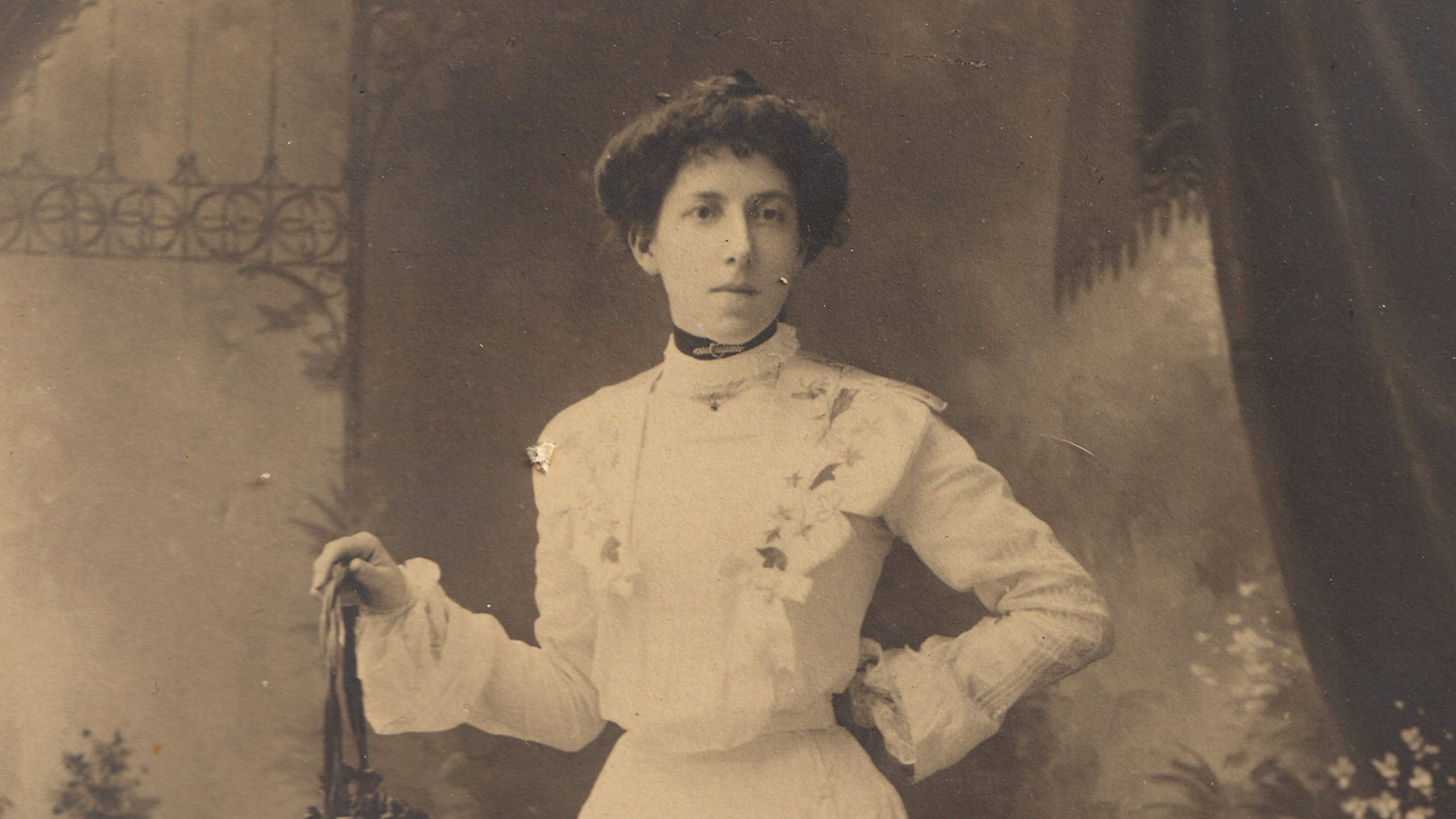Top of the Crop
A Victory at the Royal Easter Show
Farmers have harvested wheat from the fertile soil around Inverell since the 1850s, when the town was established on the land of the Gomeroi and Ennewin peoples. By the late 1920s, when this trophy for a crop of wheat was awarded to JF Morris of Hopgrove, near Inverell, land was becoming scarcer as towns grew. This meant farmers had to make every acre produce to its fullest capacity.
Farmers like James Morris were encouraged to take an active interest in agricultural shows and competitive judging to learn the latest methods in improving quality and yield. As one newspaper pointed out, farmers could learn a lot about the quality of their wheat and how to improve it by listening to the judge’s comments: ‘the alert farmer gets good value for his money by accompanying the judge on his inspection and having any defects in the crop explained in the light of the latest scientific knowledge on that particular subject.’
Inverell entered a record number of 24 entries in the 1930 Royal Agricultural Show, and was justifiably proud when Morris won the prize in the field wheat competition.
Morris was born on his property, Hopgood, which he took over when he was only 17, after his father’s death. His prizewinning wheat was actually grown on another property, Gowrie, where he was a tenant who used 165 acres in return for a share of the crops he produced (an arrangement known as sharecropping).
The paddocks in which he planted his Cleveland seed in 1929 had previously held a failed wheat crop, followed by a corn crop – Morris was not a believer in letting his fields lie fallow. He was an active member of the Inverell farming community, acting as secretary of the Gum Flat Branch of the Farmers and Settlers Association and their delegate to the Hawkesbury Agricultural College Conference in 1929.
Morris left the district in 1939, a few years after a disastrous fire in his hayshed destroyed machinery and stock. His trophy remains with the community as a testimony to the diligence and ambition of the farmers of the northern districts.


